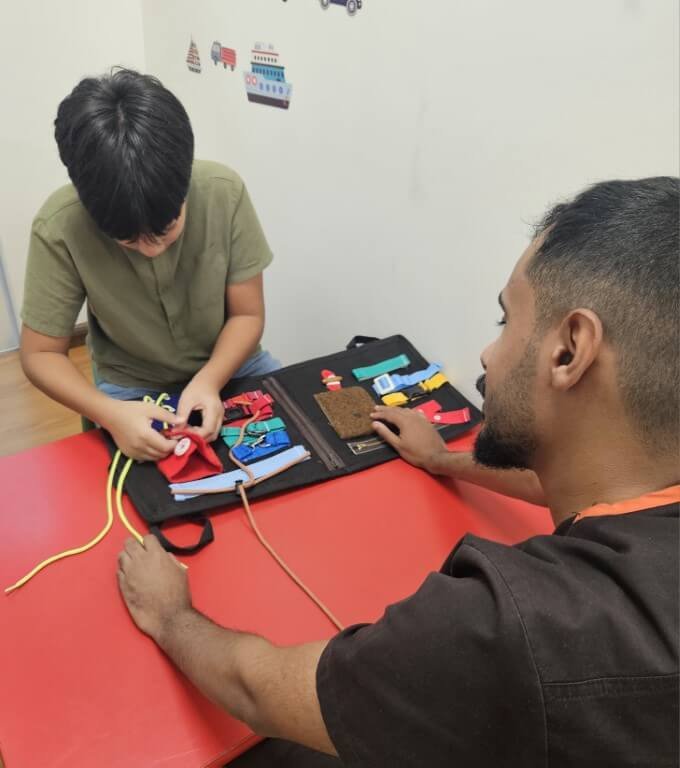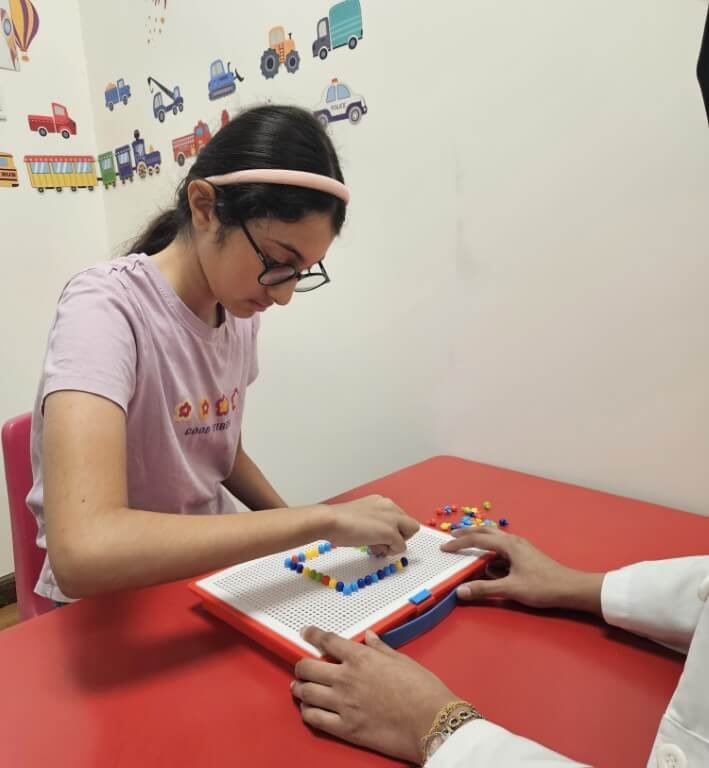
- Comprehensive Evaluation: The occupational therapist performs a comprehensive evaluation of your child to identify strengths and weaknesses in his or her motor and cognitive skills.
- Developing an individual treatment plan: Based on the evaluation results, a treatment plan is developed specifically for your child that includes a range of fun activities and exercises.
- Various therapeutic activities: These activities may include:
- Motor games: Games that enhance hand and finger muscle strength and hand-eye coordination.
- Sensory activities: Activities that stimulate different senses and help develop sensory perception.
- Activities based on the use of writing tools: training in using a pen or pencil correctly, and developing the skill of holding the tool.
- Writing activities on different surfaces: writing on sand, clay, or a whiteboard.
- Collaboration with the teacher: The occupational therapist works with the child's teacher to provide a supportive learning environment and implement therapeutic strategies in the classroom.
- Fine motor skills: These skills include hand and finger muscle strength, eye-hand coordination, and the ability to control small, precise movements.
- Physical stability: The ability to sit upright and comfortably for long periods of time without feeling tired, which greatly affects the quality of writing.
- Focus and attention: The ability to focus on the writing task and move smoothly between letters and words.
- Motor planning: The ability to plan the movements needed to write letters and words before executing them.
- Visual perception: the ability to distinguish letters and shapes and determine their directions.











